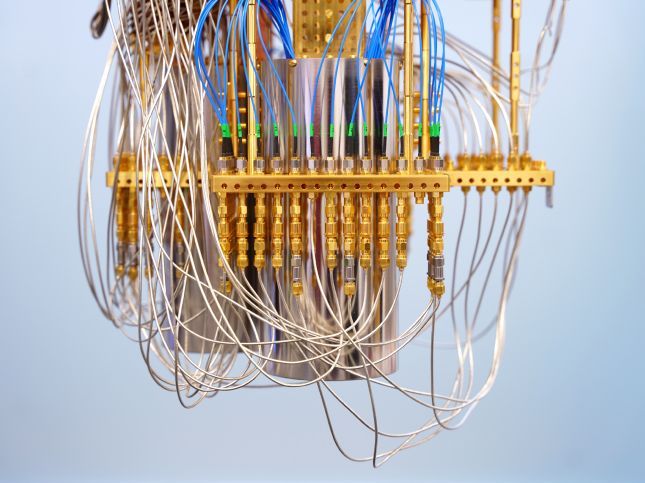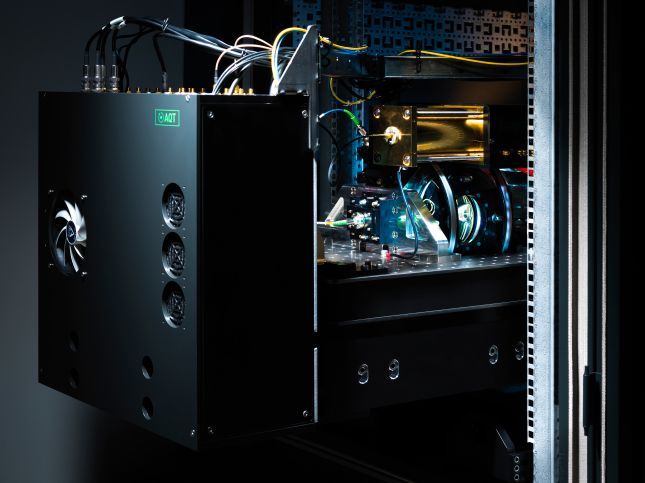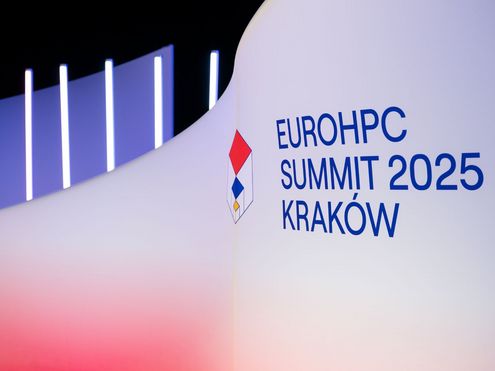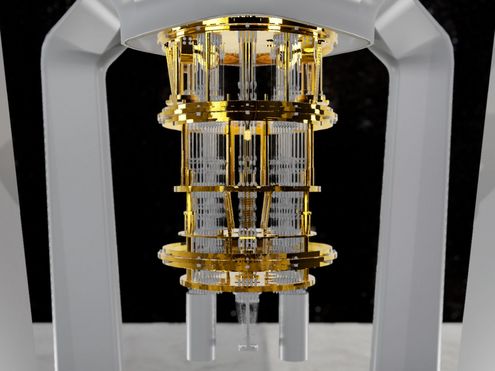


Quantum computing is the word on everybody’s lips – the technology is said to have enormous potential. It’s not just research and development. Industry and business have also discovered this field of technology for themselves and want to harness the expected potential of quantum computers.
Quantum computers are slowly conquering computing centres; algorithms are being (further) developed; programmers are working on software environments and researchers are asking themselves which applications can benefit most from which quantum computers – including in Bavaria, where internationally leading experts in the field have come together to form Munich Quantum Valley (MQV).
With the LRZ Quantum Integration Centre (QIC), we will provide the MQV with long-term support and implement the interfaces for users of Bavarian quantum computers. As an internationally recognised supercomputing centre and IT service provider for science, we at the LRZ can look back on decades of experience and draw on this to ensure reliable operation. Together with partners, we are building the necessary ecosystem and driving forward the training and further education of experts. The basis for these activities involves integrating quantum computing into supercomputing. The integration involves merging with LRZ services and users, providing education and training measures and, last but not least, integrating with high-performance computers.
The LRZ operates several systems based on superconducting qubits from technology partner IQM. The systems at the LRZ have more than 20 qubits and will have as many as 54 to 150 in the future. This technology uses resistance-free currents in superconducting circuits to realise the basic building blocks of a quantum computer, the quantum bits. These currents are relatively robust against external interference and can retain the quantum properties over long periods of time.

The system consists of an ion trap, a laser and camera unit as well as control electronics and works with 20 qubits from electrically charged atoms (ions) whose quantum states are controlled by laser beams. A laser can address any pair in the quantum register as required. Thanks to this full connectivity as well as low error rates during computing, similar or even better results can be achieved than with quantum systems with a higher qubit count but less connectivity. The AQT system does not require an extensive cooling or power supply infrastructure either.

For the “Multicore Atomic Quantum Computing System” (MAQCS) project, the Garching-based start-up planqc is currently developing a quantum system based on neutral atoms that can perform calculations for 1,000 qubits. MAQCS will run until 2027; the quantum computer developed as part of the project the project will be available to selected researchers and integrated into the LRZ’s High-Performance Computer (HPC).

We research the latest computer and storage technologies as well as Internet tools. In collaboration with partners, we develop technologies for future computing, energy-efficient computing and IT security, as well as tools for data analysis and the development of artificial intelligence systems. Here is an overview of our quantum R&D projects.

Open Superconducting Quantum Computers (OpenSuperQPlus) has the goal to deliver a 1,000-qubit quantum-computing system…

Multicore Atomic Quantum Computing Systems (MAQCS) has the goal to develop a digital and universally programmable…

The Bavarian Competence Center for Quantum Security and Data Science (BayQS) has the goal to research and develop…

How can Europe become more independent in the field of IT and computing? These and other questions are driving the…

The TV show 3Sat Nano had the LRZ explain how quantum computers work.
For the Euro-Q-Exa system, a quantum computer based on superconducting qubits will be integrated into a supercomputer.…
The LRZ supports researchers to take their first steps in quantum computing. Get in touch with our QIC team if you would like to find out more about the hardware resources available. Or also, if you have questions about optimising algorithms. Are you interested in working with us to advance quantum computing? We look forward to speaking with you.
